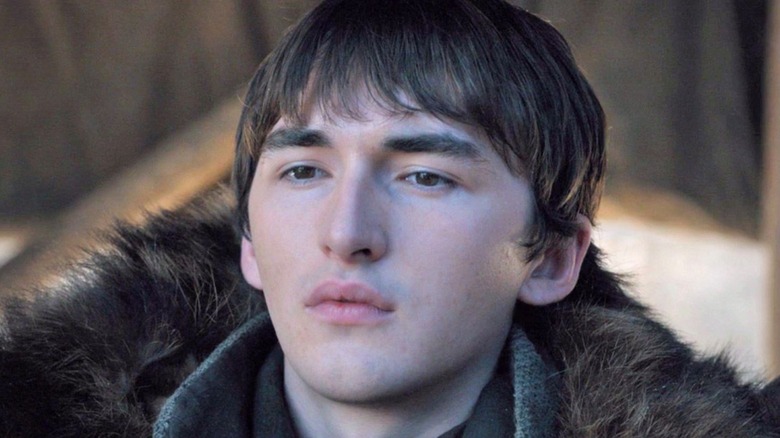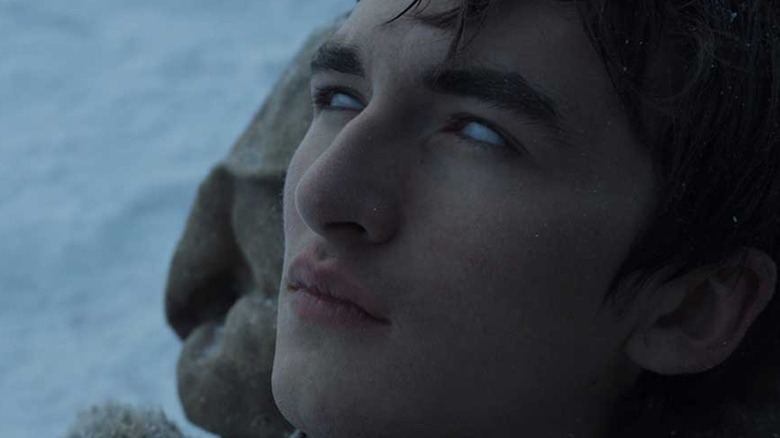The Bran Stark Scene In Game Of Thrones That Went Too Far
"Game of Thrones" was more than just a run-of-the-mill television drama, but a cultural moment that captivated audiences for some time. The HBO original arrived in April of 2011 and said its controversial goodbye just over eight years later, bringing author George R.R. Martin's written works into the mainstream and making the fantasy genre more accessible to general audiences. Simultaneously, many members of the program's ensemble cast became pop culture icons in short order, thus thrusting relative unknowns into the Hollywood spotlight and giving established actors a chance to shine in a new context.
Of the numerous names on the "GoT" cast list, few are more important than those with the surname "Stark." Season 1 led us all to believe that Eddard "Ned" Stark (Sean Bean) would be our main protagonist, only for him to meet his demise within the span of a few episodes. That left his wife, Catelyn (Michelle Fairley), to lead the family, but she and her eldest son, Robb (Richard Madden), met a grizzly end in Season 3. With the youngest son Rickon (Art Parkinson) killed three seasons later, it was up to Sansa (Sophie Turner), Arya (Maisie Williams), and Bran (Isaac Hempstead Wright) to carry on the legacy of House Stark through to the series finale.
All three of the remaining Stark kids lived vastly different lives throughout the show's run, facing triumph and misery along the way. In Bran's case, his journey was especially interesting, but one portion of it took things too far, in an underwhelming direction.
Bran becoming the Three-Eyed Raven hurt his character in the long run
Unlike his siblings who went off to war or became entangled in Westeros' political conflicts, Bran went on a spiritual journey after losing the ability to walk in Season 1. He began having dreams about a raven with three eyes, which led him on a journey North beyond the imposing Wall. It's there where Bran encountered a man who claimed to be the Three-Eyed Raven (Max Von Sydow) and told the young Stark that he was destined to take his place. In doing so, he learned the magic of Greensight, allowing him to see the entirety of time — past, present, and future.
On paper, this entire subplot sounds like a highlight of "Game of Thrones," but in execution, it didn't have the impact it should have. Throughout his education, Bran went from a bright-eyed, eager kid into a stoic, emotionless young man whose powers were beyond the comprehension of all others. As a consequence of this evolution, he became an incredibly dull, uninteresting character that fans couldn't really engage with anymore. His only real purpose was to provide crucial information in obvious ways, most notably when he alerted everyone to Jon Snow's (Kit Harington) Targaryen lineage (via Screen Rant).
The tonal shift of Bran's personality coupled with his relegation to a plot device left audiences understandably frustrated with the minds behind "Game of Thrones." This was perhaps no more obvious than when he was named the ruler of the Six Kingdoms — a reveal that was unsatisfactory and felt grossly underdeveloped. Bran once had all the potential in the world, but the "GoT" writer's room took his arc a step too far in the wrong direction.

